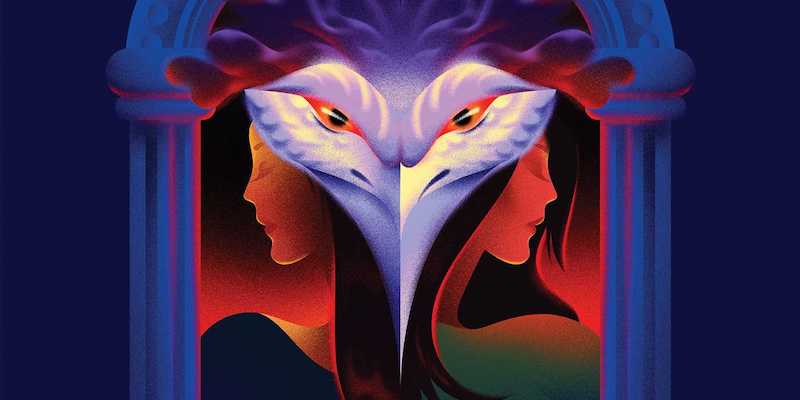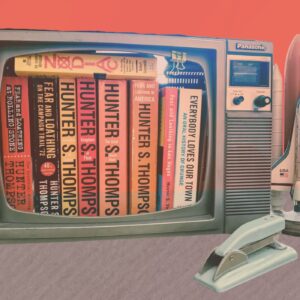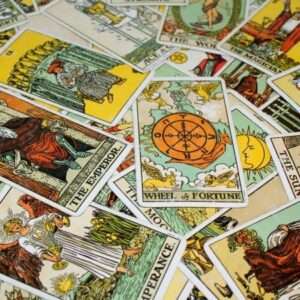
New York cults! Lawrence of Arabia! 18 new books out today.
A belated Happy New Year’s to all of you! To usher in 2024—and your likely resolutions to read more books this year than before, or, at least, to read a whole bunch of them—here are eighteen new books fresh off the presses.
Below, you’ll find fiction, poems, and nonfiction. There’s a sweeping debut from the Malaysian writer Vanessa Chan about colonialism and one woman’s unlikely—and consequential—choice to become a spy for Japanese invading forces during the Second World War; a new novel from Tara Isabelle Burton that plays with fairytale tropes to tell a tale of NYC, underworld cults, and more; a collection of poems from Katie Peterson hauntingly influenced by California’s landscapes and climate change; a reflection on humanity’s relationship with deer and, by extension, the natural world at large; provocative new book about Nietzsche and political divisions; a roving biography of T. E. Lawrence; an eye-opening exploration of A.I. and the workplace; and much, much more.
2023 was a lot, and I suspect 2024 will be the same, if not more—but how much better any year can be with a delightful new book in your hands.
*

Vanessa Chan, The Storm We Made
(Marysue Rucci Books)
“In Vanessa Chan’s spellbinding debut, one woman’s desire to change her destiny shapes the future of a colonized nation. Combining cinematic grandeur with nuanced storytelling, The Storm We Made offers the hidden history that only fiction can reveal: the everyday yearnings of people surviving a brutal occupation, children trying to make sense of the unspeakable, and the search for love. I’ll never forget this book.”
–Jessamine Chan

Tara Isabella Burton, Here in Avalon
(Simon & Schuster)
“Here in Avalon is a fascinating trip to a demimonde of Burton’s prodigious imagination. In its mysterious bacchanal, we find a unique story about the seductions of art and beauty, and the temptation to leave the stultifying mainstream behind.”
–Lydia Kiesling

Julie Myerson, Nonfiction
(Tin House)
“This glitteringly painful novel, so steady and clear in its analysis of addiction, creativity, and the factors that determine female and familial identity, is the book [Myerson] was intended to write, and she has elevated it into a template for the re-making of self by means of a transformative and radical honesty.”
–Rachel Cusk

Katie Peterson, Fog and Smoke: Poems
(FSG)
“Each line shines in the sun like stained glass. Fog and Smoke is a triumph of observation and intimacy that invigorates the reader to act for the natural world.”
–Booklist

Erika Howsare, The Age of Deer: Trouble and Kinship with Our Wild Neighbors
(Catapult)
“Extraordinary and absorbing, The Age of Deer proves John Muir’s notion that when we pick out one thing in the universe we find it hitched to everything else. Howsare understands that we live in an age of numbness when ‘few of us are willing to really feel,’ and suggests, through the lives of deer and her experience with them, an elemental antidote.”
–David Gessner

Jill Burke, How to Be a Renaissance Woman: The Untold History of Beauty & Female Creativity
(Pegasus Books)
“A lively and intriguing exploration of female life in the Renaissance, lifting the lid on anxieties and aspirations that will sound oddly familiar to any twenty-first-century reader. You’ll never look at Renaissance portraits in the same way.”
–Maggie O’Farrell

Ranulph Fiennes, Lawrence of Arabia: My Journey in Search of T. E. Lawrence
(Pegasus Books)
“A biography of T.E. Lawrence, including accounts of his military and political work in supporting the Arab uprising against the Ottoman Empire in WWI, runs parallel to Fiennes’ recollection of events in Oman and their relation to Lawrence’s experiences. Fiennes’ descriptions of the immense Arabian Desert and its weather are arresting and surprising, his account suspenseful.”
–Booklist

Tara Karr Roberts, Wild and Distant Seas
(Norton)
“A lyrical and beautiful work of historical fiction….Charming and atmospheric, Wild and Distant Seas celebrates the complexities of womanhood through the ages and poses questions about memory, family identity, one’s legacy, and the nature and power of free will. What stories do we inherit and how much can we alter the narrative of our lives and of those of our loved ones? And when is it time to let go? At its heart, this is a story of loss, redemption, tenacity, and hope.”
–Julie Gerstenblatt

Christy Lefteri, The Book of Fire
(Ballantine Books)
“Christy Lefteri’s beautiful new novel, The Book of Fire, is a compelling story of love, loss, and redemption in the face of unimaginable tragedy. As with The Beekeeper of Aleppo, Christy transports the reader to a once lush and now destroyed world, where a community—and a mother—must fight to regain what has been lost. Uniquely crafted and full of both stunning imagery and human emotion, The Book of Fire is a story that will long remain in the reader’s mind.”
–Kristin Hannah

Matthew Blake, Anna O
(Harper)
“Anna O sits at the pinnacle of psychological suspense! It’s a nonstop thrill ride through the darker sides of the human mind, filled with plot twists galore and populated by characters who are utterly real and undeniably appealing. This novel is written in the voice of a natural-born storyteller.”
–Jeffrey Deaver

Fiona Maddocks, Goodbye Russia: Rachmaninoff in Exile
(Pegasus Books)
“Classical music critic Maddocks details in this captivating biography the fascinating and traumatic life of Russian composer and pianist Sergei Rachmaninoff. Maddocks provides an up-close portrait of an influential musician and the shifting cultural climate in which his legacy was shaped. Classical music lovers will be engrossed.”
–Publishers Weekly

Caroline Campell, The Power of Art: A Human History of Art: From Babylon to New York City
(Pegasus Books)
“Campbell, director of the National Gallery of Ireland, debuts with an enriching tour of 15 cities. Conjuring each of her settings in vivid detail, Campbell offers both a lively narrative and a corrective to the ‘genius’ model of art history. Readers will come away with fresh insights into how art gets made.”
–Publishers Weekly

Bruce Hoffman, Jacob Ware, God, Guns, and Sedition: Far-Right Terrorism in America
(Columbia University Press)
“At a pivotal moment in American history, Bruce Hoffman and Jacob Ware have given Americans of all stripes a vital guide to the dangers pervading our politics and especially the risk of internecine violence. Few if any other scholars could approach this freighted topic with the historical perspective, disciplinary breadth, and methodological rigor as do Hoffman and Ware. Their writing, moreover, is brisk and stylish, all the better to reach the wide audience this urgently needed book deserves.”
–Steven Simon

Michele Mari, Verdigris (trans. Brian Robert Moore)
(And Other Stories)
“The charm that Mari exercises on his readers, from the most devoted to the most distracted, is incredible….More than anyone else, Michele Mari represents today a model of writer that seems on the point of disappearing—fully literary, lofty.”
–Esquire

Andrey Platonov, Chevengur (trans. Robert Chandler and Elizabeth Chandler)
(New York Review of Books)
“A superb work of Soviet-era Russian literature in a welcome, well-annotated new translation.”
–Kirkus Reviews

Daniel Tutt, How to Read Like a Parasite: Why the Left Got High on Nietzsche
(Repeater Books)
“Written with clarity and force, sensitive to historical context and covering an extensive array of the Nietzsche literature, this book animates a new standard in reading Nietzsche.”
–Don Dombowsky

Hilke Schellman, The Algorithm: How AI Decides Who Gets Hired, Monitored, Promoted, and Fired and Why We Need to Fight Back Now
(Hachette)
“In The Algorithm, Hilke Schellmann has done the impossible: she has rendered the baffling ‘Wild West’ of AI immensely readable and approachable. Schellmann gives us the dark and hidden history of tech innovation and the marketplace through the stories of those whose lives have been smashed by its glitches.”
–Eliza Griswold

Gary Taube, Rethinking Diabetes: What Science Reveals About Diet, Insulin, and Successful Treatments
(Knopf)
“This is [Gary] Taubes’s fifth book about nutrition science, and I would argue that his meticulous, science-based work (he is a three-time winner of the National Association of Science Writers’ Science in Society Journalism award) makes him the Bryan Stevenson of nutrition, an early voice in the wilderness for an unorthodox view that is increasingly becoming accepted.”
–The Guardian
Gabrielle Bellot
Gabrielle Bellot is a staff writer for Literary Hub. Her work has appeared in The New York Times, The Atlantic, The New York Review of Books, The New Yorker, The Paris Review Daily, The Cut, Tin House, The Guardian, Guernica, The Normal School, The Poetry Foundation, Lambda Literary, and many other places. She is working on her first collection of essays and a novel.



















